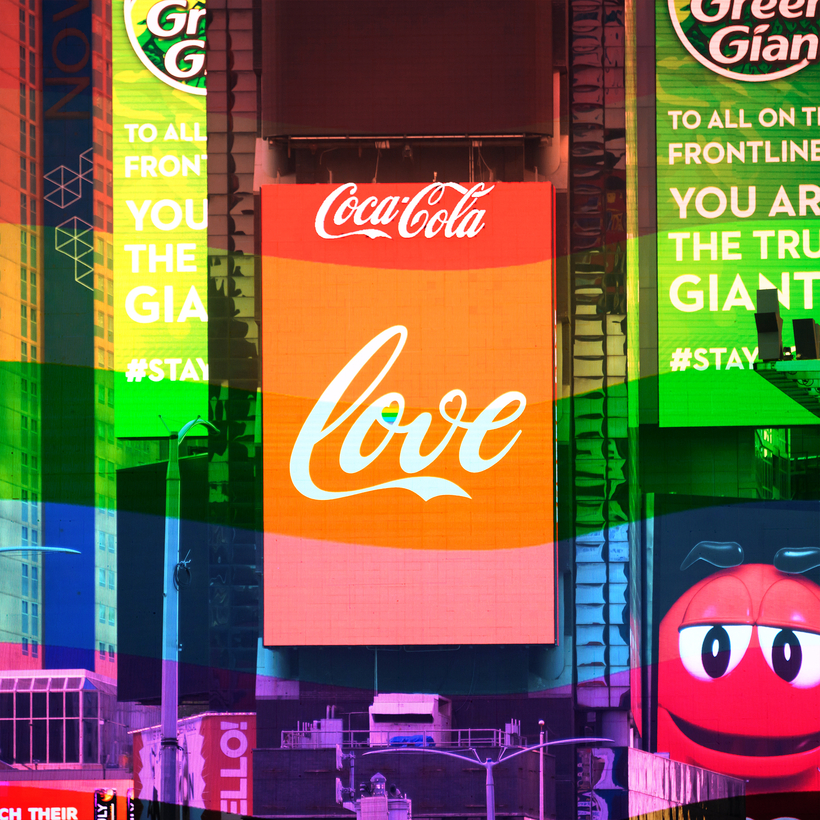I attended my first Gay Pride event for a long while in Washington DC a couple of years ago. Much of it was very familiar: the rainbow of fabulous costumes, the bursts of Gloria Estefan. One thing however was notably different. Almost every float had a corporate sponsor. The giants of Wall Street were all there: Comcast, Raytheon, Apple.
Since when had Pride become a day out for the titans of the stock exchange?
The answer to this question lies in Vivek Ramaswamy’s new book, Woke, Inc. Ramaswamy, born into an Indian immigrant family in Ohio, is a bona fide member of America’s elite, attending Harvard and Yale before founding Roivant Sciences, a successful biopharmaceutical company.
But having diligently conquered the high citadels of American commerce, Ramaswamy was horrified by what he encountered, and so has become a “traitor to his class”, calling out what he sees as the cynical exploitation of modern identity politics by corporate America (and by extension, Britain).
His argument is this: wokeness, which he defines loosely as “obsessing about race, gender and sexual orientation”, has become the dominant ideology of liberal America, coursing from university campuses through social media and into the workplace.
Corporate Jujitsu
What huge companies such as Coca-Cola, Amazon and Goldman Sachs have done is appropriate this worldview, and put it in the service of profit. They pretend that they care about something other than profit and power, says Ramaswamy, “precisely to gain more of each”. Corporate leaders (and indeed celebrities) have become masters in what he calls “practiced vulnerability”: talking publicly about pain and struggle to mollify their critics and justify their power.
This growth of “woke capital” is a piece of cunning corporate jujitsu: self-interest masquerading as morality. Coca-Cola, for example, jumped enthusiastically on the race and diversity bandwagon after the murder of George Floyd in Minneapolis last year. It brought in expensive diversity consultants who instructed its employees on how to be “less white”, meaning “less oppressive, less arrogant, less defensive and less certain”.
Not only does Ramaswamy view this essentialism — assuming all carriers of a certain skin color share negative characteristics — as racist, he also isn’t buying Coca-Cola’s commitment to anything other than its bottom line.
Coca-Cola, he argues, “helps fuel an epidemic of diabetes and obesity among black Americans through some of the products it sells”. The hard business decision for Coca-Cola is whether to change some of its ingredients. The easier and much cheaper decision is to pay diversity consultants to instruct its employees on how to become less white. Look good, get rich.
What huge companies such as Coca-Cola, Amazon and Goldman Sachs have done is appropriate this worldview, and put it in the service of profit.
He takes a similar swipe at Amazon, which pledged to donate $10 million to Black communities in the wake of Floyd’s death, while just a few months earlier it had fired employees who dared to speak up about the Dickensian working conditions in its warehouses.
Disgraced former WeWork chief executive Adam Neumann is another target. This is a man who trumpeted diversity and claimed his company would “elevate the world’s consciousness” while purchasing a $60 million corporate jet for trips to the Maldives and bragging to Ramaswamy about how nice it is to have female executives, who often go home early because “they have other shit to do”.
Then there’s Uber, making a song and dance about supporting Black-owned businesses, but fighting desperately to avoid providing employee benefits to its drivers.
The list goes on and on, perhaps most insidious of all are the large defense companies, Raytheon and Lockheed Martin, who embrace events such as Pride parades while reaping huge profits from war and misery. This adheres to Ramaswamy’s first commandment of woke capitalism: “The more ruthless your business is, the more progressive you must act.” Ramaswamy says he prefers old-school naked self-interest capitalism to “nouveau woke capitalism”, because at least it was honest about what it wanted.
The hard business decision for Coca-Cola is whether to change some of its ingredients. The easier and much cheaper decision is to pay diversity consultants to instruct its employees on how to become less white.
Is the author too harsh? Perhaps a little. Ultimately there are lots of well-intentioned liberals out there who do genuinely believe that more diversity means a better world. That bringing more people of color and women into positions of power is more just and leads to better decision-making. And they have a point. The skin color, sex and sexuality we are born with do still shape our lives and that ought to be recognized.
But Ramaswamy is also right to point out how desperately narrow our present concept of diversity often is. We prize diversity of skin color and sex, but not political, intellectual or regional diversity, and not our diversity of thought. Ultimately, who we are on the inside matters more.
Ramaswamy is a conservative and a culture warrior, meaning there’s inevitably a surfeit of liberal-bashing and partisanship in his writing. Yet there’s one thing that left and right can agree on, which is his meticulous exposure of the vapidity and rank cynicism that underlie corporate wokeness. As consumers, all of us, woke and not, could do with reading this book and absorbing some of its cynicism, so that in the future we know exactly what we’re being sold and why.
Josh Glancy is the Washington bureau chief for The Sunday Times of London

